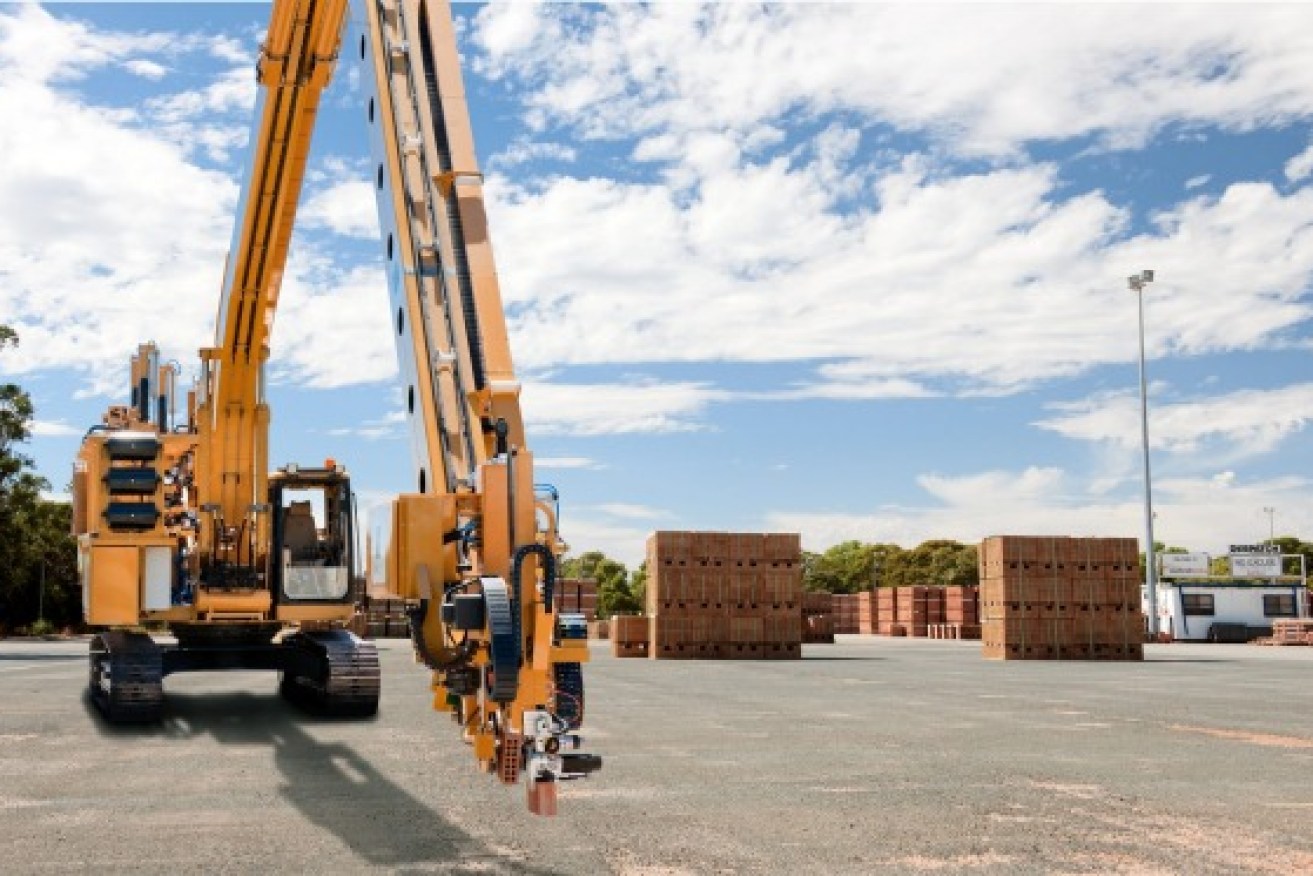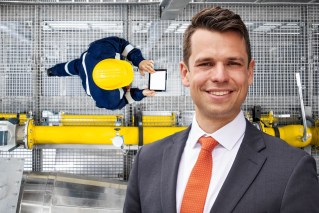Rage against lawmakers, not the machines


Fastbrick's robot can lay bricks up to 25 times faster than a human. Photo: Fastbrick
Australia’s growing under-employment problem has numerous causes, but a big one is the accelerating phenomenon of ‘automation’ – and displaced workers, stripped of the dignity of a decent income, don’t like it one bit.
The latest example comes via Perth firm Fastbrick Robotics, which this week secured a large investment to back a ‘robot bricklayer‘ it has been developing for the past few years.
Critics on social media have slammed the idea. They argue that such a machine will take away yet more jobs from human workers – just like those automated check-outs in supermarkets, robot underground miners, robot espresso machines, drone pizza delivery systems and, shudder, generators of automated journalism.
The additional wealth generated by the rise of robots is unquestionably good, but the accompanying social ills of unemployment are unquestionably bad.
And if governments can’t deal with the latter, all manner of protest, civil disobedience and sabotage look likely. Unemployed masses do dangerous things.
None of that seems to worry construction equipment giant Caterpillar, which tipped the $2.6 million into the Fastbrick project, with an option to buy a further $10.4 million of the company’s shares, subject to a Fastbrick shareholder vote.
Caterpillar has obviously done its sums. Fastbrick’s robot constructs walls between 20 and 25 times faster than a human.
If marketed around the world, Fastbrick reckons between $100 billion and $200 billion worth of machines could be sold. Yes, billions.
The crucial question, though, is what happens to the poor sods thrown out of work.
It’s easy to see why this machine will be popular. Really good brickies can earn about $80,000 a year for standard hours in Australia, meaning the machine could get through something like $2 million of work a year, priced in human-worker dollars.
For a machine expected to cost about $2 million to buy, that’s a pretty convincing return on investment. The profit margin would fall over time, but so would the cost of building a house.
That’s why automation continues to spread through so many industries, meaning higher returns for the owners of capital, and financial disaster for workers who can’t find replacement work.
The companies can’t be expected to voluntarily ignore robots. To do so in most cases would only increase their competitor’s profits and decrease their own.
And it’s true, as Fastbrick CEO Mike Pivac told me this week, that workers who skill-up to work with the new technologies will likely be paid more.
But as machines begin to replace whole groups of workers, we are already seeing a lack of suitable jobs for them all to shift into.
And so, governments must act. There are two ideas doing the rounds: a ‘robot tax’ and a ‘universal basic income’.
A robot tax makes humans more competitive relative to robots, and raises revenue to be splashed about to improve the lot of excluded human workers – in theory, at least.
A ‘universal basic income‘ uses additional tax raised from the increasingly efficient economy to give every adult citizen the means to buy the basics of life.
Both ideas sound fanciful, but the structural exclusion of Australian workers is already creating an unstoppable political force.
In the US, similar trends are a major part of the Trump political revolution. Workers who’ve ‘done everything right’ are demanding to know why they’re on the employment scrap heap.
In a democracy that values humans more than machines, governments must intervene to ensure the additional wealth generated by robots is, one way or another, used to restore dignity to the humans they were supposed to serve.








